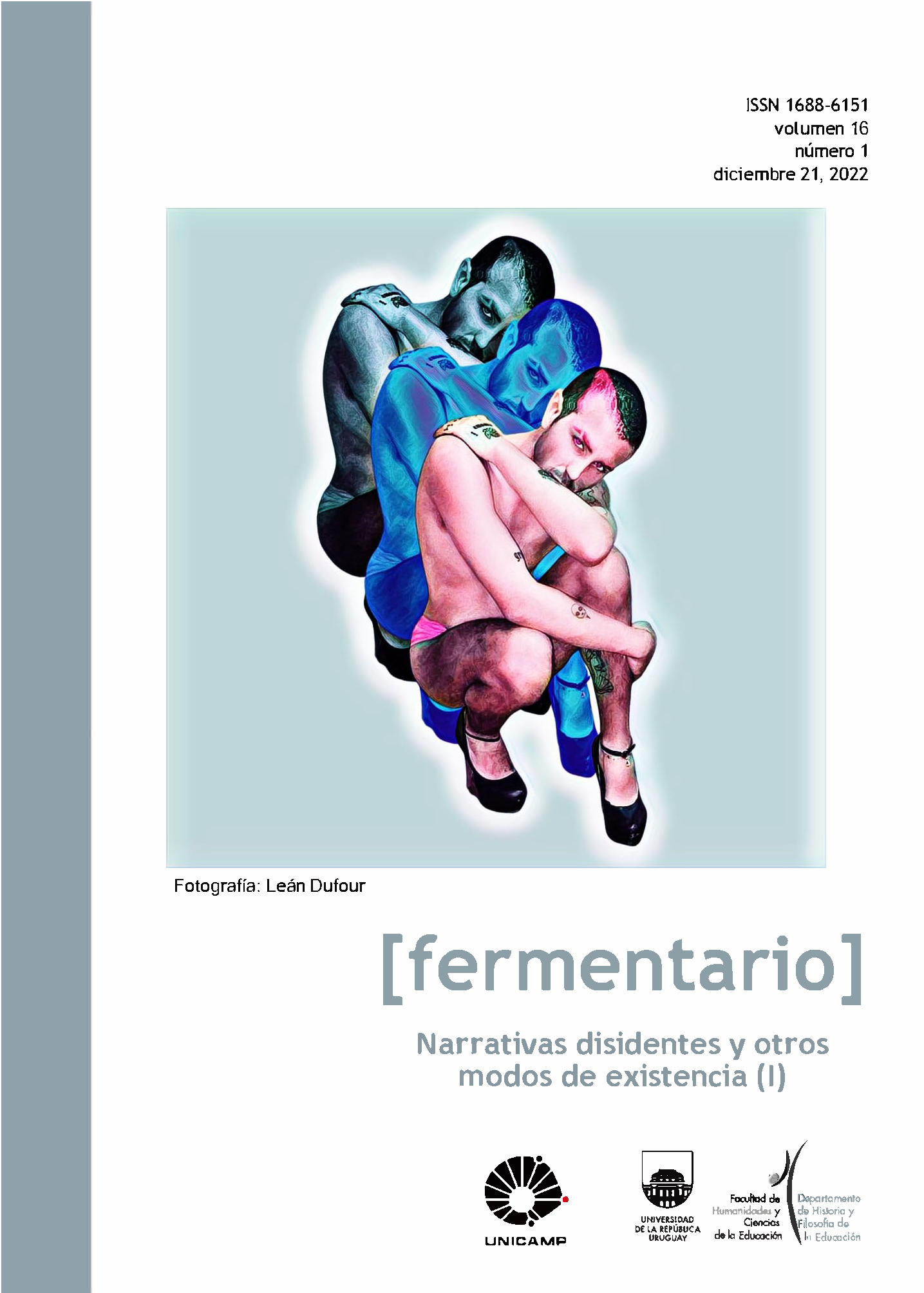Vínculos e limites do Existencialismo sartriano na teoria das ciências humanas de Frantz Fanon.
Published 2022-12-21
Keywords
- Existencialismo – Negritude – Consciência.
- Existentialism - Blackness - Consciousness.
- existencialismo, negritude, consciência
How to Cite
Abstract
This paper aims to conduct a careful reading of the text Black Skin, White Masks (1952) by the philosopher Frantz Fanon (1925-1961), which has been discussed within Pan-African studies and post-colonial theories. In this paper we will make a detailed analysis of the relations that the Martinican thinker had with another French thinker named Jean-Paul Sartre (1905-1980), who even wrote the preface to another text by Fanon entitled The Damned of the Earth (1961).
Fanon was strongly influenced by Sartre's existentialist theory as disseminated in Europe in the 20th century, with the philosophical work Being and Nothingness: Essays on phenomenological ontology (1943) as a reference text. The meaning that we will give to this writing is not to be confused with a Sartrian reading of Fanon. On the contrary, we will try to expose Fanon's appropriation of the existentialist theory and, if possible, to point out the limits of the theory indicated by the Martinican thinker, especially when it comes to the studies of the "colored man".
Therefore, it is under the horizon of a theory of human sciences that has the purpose of "disalienating the black man" that we will investigate the way Fanon uses and criticizes Sartre's theory throughout his work Black Skin, White Masks.
Downloads
References
- Fanon, F.(2008). Pele Negra, máscaras brancas. Tradução de Renato da Silveira. Salvador: EDUFBA.
- Luz, Paula Sofia. (2021). Há crianças portuguesas que só falam ‘brasileiro’. Diário de Notícias. Sitio Eletrônico. Portugal, 10 de Novembro de 2021. Web: https://www.dn.pt/sociedade/ha-criancas-portuguesas-que-so-falam-brasileiro-14292845.html.
- Moura, C. (2017). Psicanálise Existencial, Existencialismo e História: a dimensão sócio-material e autenticidade no processo de construção de si. Curitiba: CRV.
- Moutinho, L. (1995). Sartre: psicologia e fenomenologia. São Paulo: Brasiliense.
- Politzer, G. (2004). Crítica dos fundamentos da psicologia: a psicologia e a psicanálise. Trad: Marcos Marcionilo e Yvone Maria de Campos Teixeira e Silva. 2°. Edição. Piracicaba: Editora UNIMEP.
- Sartre, J-P. (2019). A imaginação. Tradução de Paulo Neves. Porto Alegre, RS: L&PM.
- ___________.(2015a). A Transcendência do Ego: Esboço de uma descrição Fenomenológica. Tradução de João Batista Kreuch. 2. ed. – Petrópolis, RJ: Vozes.
- ___________.(2002) Crítica da razão dialética (Tomo I): precedido por questões de método. Tradução de Guilherme João de Freitas Teixeira; apresentação da edição brasileira, Gerd Bornheim. Rio de Janeiro: DP&A.
- ___________.(2019) Esboço para uma teoria das emoções. Tradução de Paulo Neves. – Porto Alegre, RS: L&PM.
- ___________. (2019) O Imaginário: psicologia fenomenológica da imaginação. Edição revisada e apresentada por Arlette Elkaim-Sartre. Tradução de Monica Stahel. – Petrópolis, RJ: Vozes.
- ___________.(2015b) O ser e o Nada – Ensaio de Ontologia Fenomenológica. Tradução de Paulo Perdigão. 24. ed. Petrópolis, Rj: Editora Vozes.


